Mesh survivors' trust 'completely depleted'
- Published
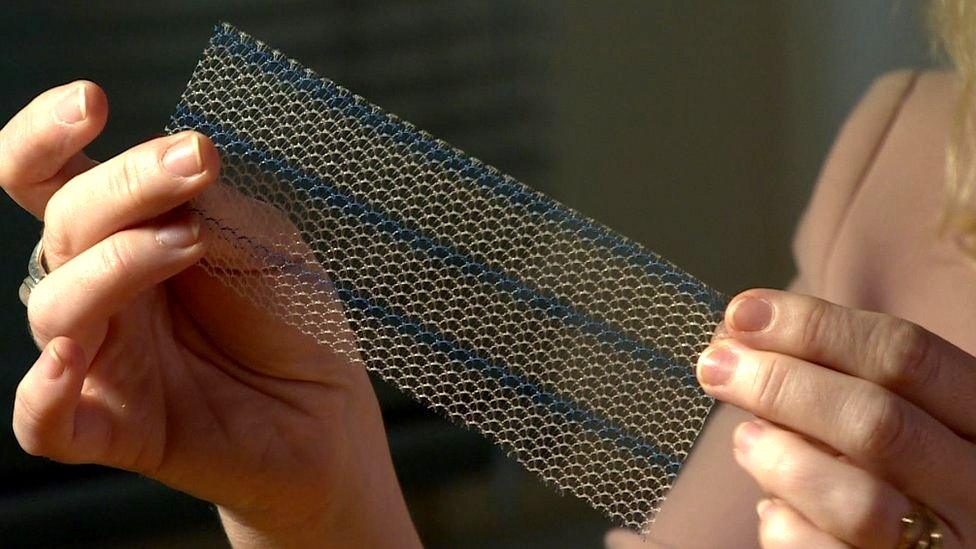
The synthetic implants are very difficult to remove after they have been fitted
Dozens of women whose lives have been damaged by mesh implants have criticised a service set up to support them.
Holyrood's health committee gathered the views of 75 women on the Complex Mesh Surgical Service (CMSS).
The report said the women's long-term negative experiences had coloured their views of the current service.
It said trust in the many medical professionals they had encountered was "all but completely depleted".
Tens of thousands of women had transvaginal mesh implants in Scotland to treat incontinence and prolapse, conditions many women suffer after childbirth.
The implant procedure was halted in 2018 because of the life-changing side effects many women suffered.
Some have since paid thousands to undergo private treatment to alleviate their symptoms.
The CMSS, hosted by NHS Greater Glasgow and Clyde, was set up to support women who had experience of transvaginal mesh.
The committee report said the overall conclusion from a survey of women affected was that service did not have a clear referral pathway or a full range of treatment and support options.
It said many women reported problems being referred to their service by their GP and some waited years to get an appointment once they had managed to get a referral.
One woman responded by saying she felt she was "educating" her GP about mesh.
Waited nearly two years
Another said GPs did not have much knowledge of the complications that were associated with mesh and associated ailments such as autoimmune issues and fatigue.
Women told the Holyrood committee they found it hard to contact people in the service or in their own health board to answer questions or provide support.
About half of the woman in the study mentioned long waits either from referral or between appointments, with one woman saying she had "waited nearly two years between appointments".
The report concluded: "It is clear however that many of the responses come from women who have suffered life-changing symptoms for many years and whose trust in the many medical professionals they have encountered is all but completely depleted.
"This long-term, negative experience will, unsurprisingly, colour their views of the current service."
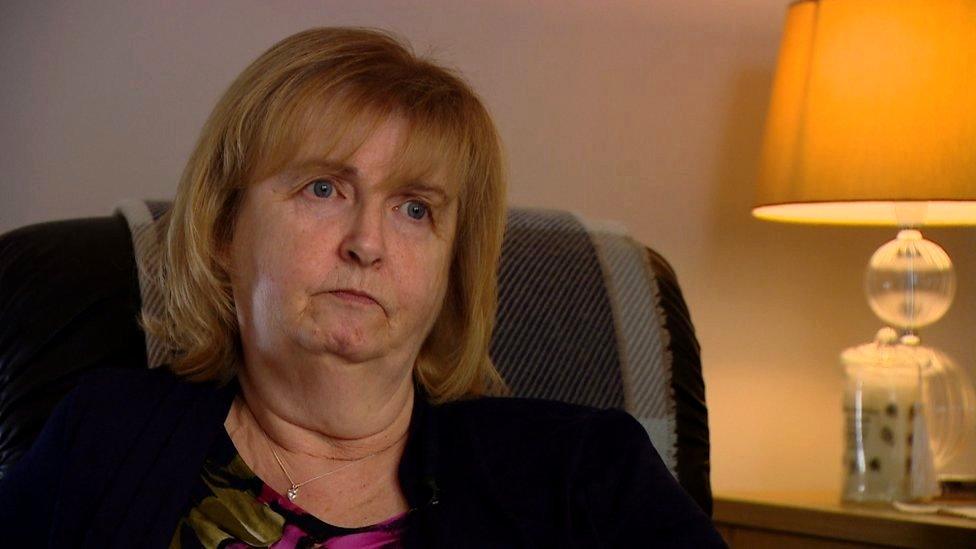
Marian Kenny had to give up her career as a psychiatric nurse because of the injuries she suffered as a result of mesh
Marian Kenny, from Clydebank, had to give up her career as a psychiatric nurse because of the injuries she suffered as a result of mesh.
Ms Kenny, from the Mesh Survivors Group, told the BBC there was a lack of trust in NHS surgeons because of issues from the past.
She said there were 800 women in the Scottish Mesh Survivors Group and most had a negative experience.
Ms Kenny said the Scottish government should have brought American expert Dr Dionysios Veronikis to Scotland to perform removal surgery.
She paid for her own trip to the US to see Dr Veronikis after previous surgery in Edinburgh in 2016 did not remove the whole of the mesh strip.
'Quality of life is better'
She said the Scottish surgery removed a few centimetres of mesh whereas Dr Veronikis took out 16cm (6in).
"Since having it removed, I still have chronic pain, that won't ever change, but my quality of life is better," she said.
"I am more able to do some things that I wasn't able to do before the removal.
"The fact that I know it has gone is incredible. I can't tell you the weight off my shoulders to know that I'm not at further risk from it."
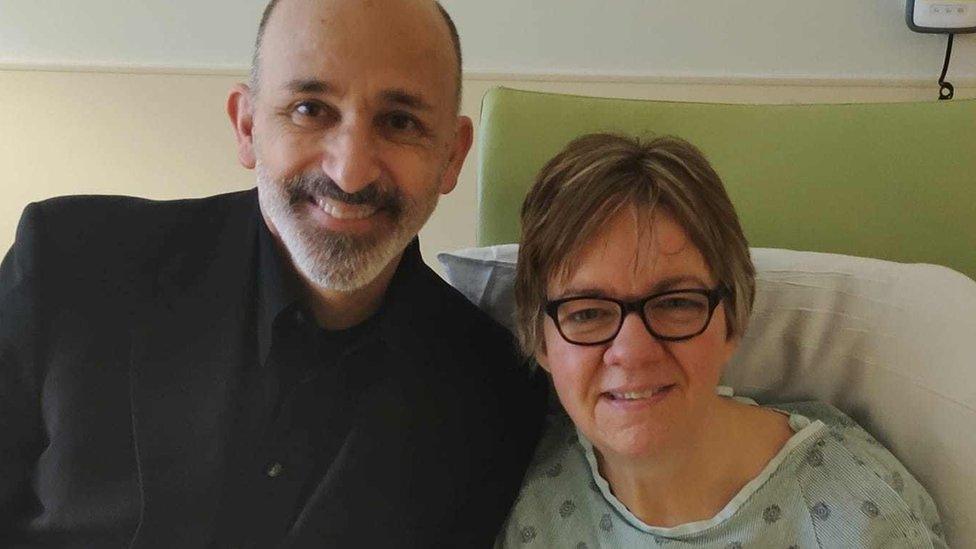
Kim Francis went to America to have her mesh removed by Dr Veronikis
Kim Francis, who lives in Cullen in Moray, had her mesh implanted in 2006 due to bladder problems. It was not until years later she started to have severe pelvic pain.
The pain became so bad she could not walk without a stick and took strong painkillers every day. Eventually, she had to give up work in January 2020.
Ms Francis said her doctors did not initially think her problems were related to the mesh but she was finally referred to the Complex Mesh Surgical Service in Glasgow.
She was initially not keen to have her mesh removed in Glasgow and asked to be considered for referral to Dr Veronikis in Missouri, under an agreement made by the Scottish government in 2021.
Ms Francis told the BBC it was great to have that opportunity but the pathway to the surgery in the US had not been an easy one.
She finally had the surgery five weeks ago and Dr Veronikis recovered all 20cm of the mesh.
Ms Francis said her recovery was going really well.
"The pain that the mesh was causing has gone, which is fantastic, and I'm doing very well," she said.
Looking back at her experience Ms Francis said the waiting times for appointments were far too long.
"Women are left waiting months and months, maybe a year or more, and then I know a lot are finding their appointments are cancelled at the last minute," she said.
"This should not be happening because if you are suffering from chronic pain you want answers and you don't want to be waiting.
"The service should be and, I'm sure it can be, improved."
Patient feedback
The Complex Mesh Surgical Service is run by partners including NHS Greater Glasgow and Clyde and NHS National Services Scotland.
In a statement the health board said it was grateful to all of the women who had taken the time to give feedback.
It said its own patient experience team had also conducted surveys of patients on multiple occasions over the past three years.
"This audit recognised some of the top-line issues raised in the committee's report, however, more recently and following a concerted effort from clinical teams to improve the service based on previous feedback, patients have reported back overwhelmingly positively, with communication, environment, person-centred approaches receiving upwards of 90% to 100% satisfaction rates," the statement said.
Mary Morgan, chief executive of NHS National Services Scotland said: "NSS will carefully review the findings once they have been shared with us, within the scope of our role as the national commissioner of the Complex Mesh Surgical Service."
Related topics
- Published2 March 2023
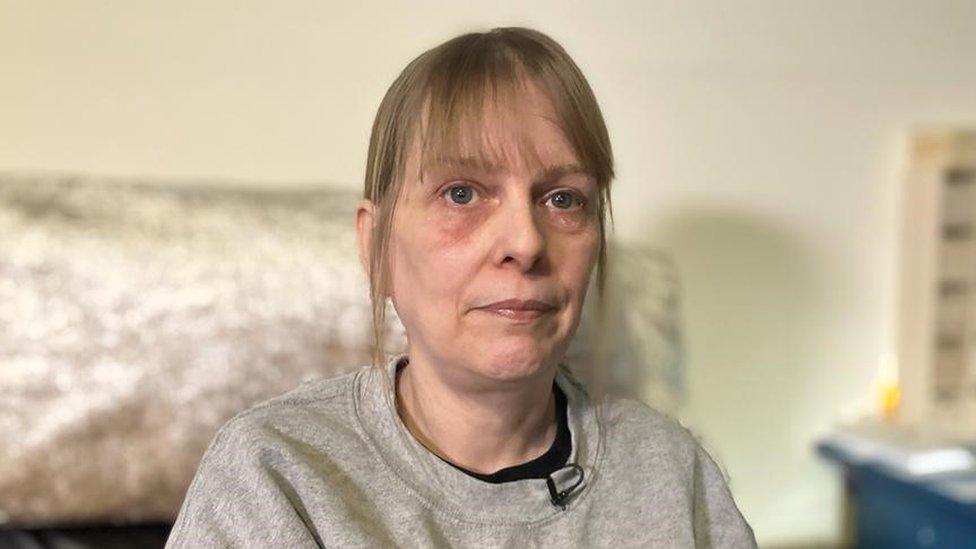
- Published12 July 2022
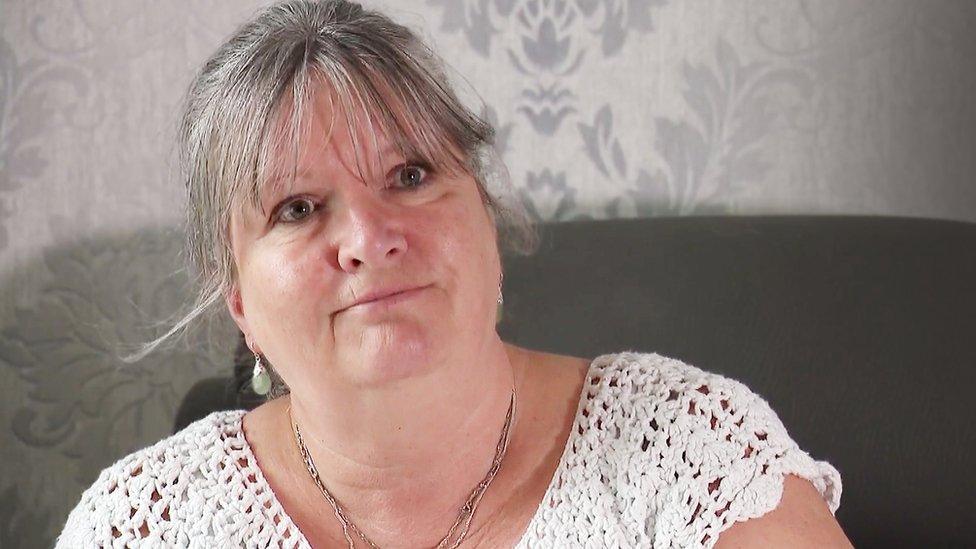
- Published25 January 2022
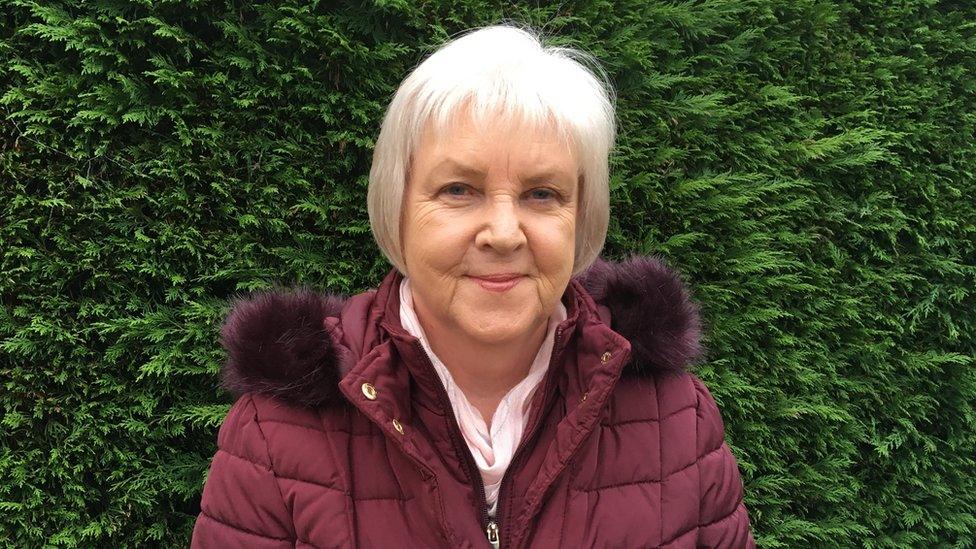
- Published12 July 2021

- Published24 June 2021

- Published23 February 2020
